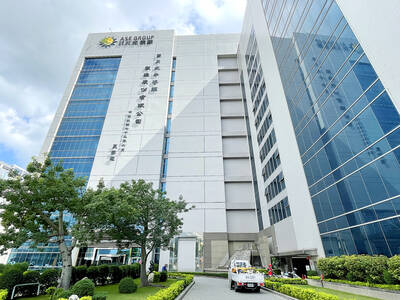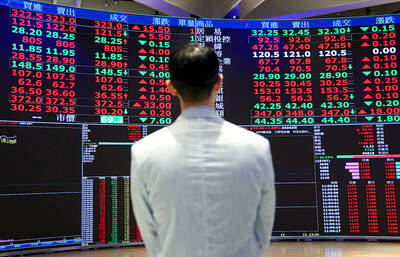Thailand's Finance Minister Chalongphob Sussangkarn said the country's economy will pick up next year after the government increased spending and foreign investment recovered.
The expansion may "easily" exceed 5 percent next year, up from an estimated 4.5 percent this year, he said in an interview yesterday in Washington.
Growth "certainly will pick up because of these investment projects, whether on the public-sector side or the foreign-investor side, that will be kicking in," Chalongphob said.
Thailand, which has depended on exports since last year's coup eroded domestic confidence and demand, has lifted public spending and lured back international investors to shore up growth. Chalongphob anticipates that will help compensate for a global slowdown.
"Over time, maybe the pace of export growth may slow down a little bit, particularly with the problems in the subprime market, which may affect the US economy," Chalongphob said. "So we already put in place the additional engines that will help to push the economy along if exports begin to decline, and this is through investment."
Thailand's Cabinet agreed last Tuesday to spend 59 billion baht (US$1.9 billion) to build a railway line in Bangkok, the third mass-transit project approved by the government for the capital.
Ford Motor Co, the second-largest US carmaker, and its Japanese affiliate Mazda Motor Corp said on Oct. 9 they would spend more than US$500 million to set up a plant in Thailand.
"Foreign business confidence has actually gone way up" after the government tried to show investors it's not "turning our back to the world," Chalongphob said.
But consumer confidence is at a five-year low after sliding in 11 of the past 13 months. The central bank cut its benchmark rate at five of seven meetings this year to buoy consumption.
The inflation rate remains "relatively low" at a little above 2 percent, and the country has "room yet to absorb the increase in oil prices," Chalongphob said.

EXPANSION: The investment came as ASE in July told investors it would accelerate capacity growth to mitigate supply issues, and would boost spending by 16 percent ASE Technology Holding Co (ASE, 日月光投控), the world’s biggest chip assembly and testing service provider, yesterday said it is investing NT$17.6 billion (US$578.6 million) to build a new advanced chip packaging facility in Kaohsiung to cope with fast-growing demand from artificial intelligence (AI), high-performance-computing (HPC) and automotive applications. The new fab, called K18B, is to commence operation in the first quarter of 2028, offering chip-on-wafer-on-substrate (CoWoS) chip packaging and final testing services, ASE said in a statement. The fab is to create 2,000 new jobs upon its completion, ASE said. A wide spectrum of system-level chip packaging technologies would be available at

Taiwan’s foreign exchange reserves hit a record high at the end of last month, surpassing the US$600 billion mark for the first time, the central bank said yesterday. Last month, the country’s foreign exchange reserves rose US$5.51 billion from a month earlier to reach US$602.94 billion due to an increase in returns from the central bank’s portfolio management, the movement of other foreign currencies in the portfolio against the US dollar and the bank’s efforts to smooth the volatility of the New Taiwan dollar. Department of Foreign Exchange Director-General Eugene Tsai (蔡炯民)said a rate cut cycle launched by the US Federal Reserve

HEAVYWEIGHT: The TAIEX ended up 382.67 points, with about 280 of those points contributed by TSMC shares alone, which rose 2.56 percent to close at NT$1,400 Shares in Taiwan broke records at the end of yesterday’s session after contract chipmaker Taiwan Semiconductor Manufacturing Co (TSMC, 台積電) hit a fresh closing-high amid enthusiasm toward artificial intelligence (AI) development, dealers said. The TAIEX ended up 382.67 points, or 1.45 percent, at the day’s high of 26,761.06. Turnover totaled NT$463.09 billion (US$15.22 billion). “The local main board has repeatedly hit new closing highs in the past few sessions as investors continued to embrace high hopes about AI applications, taking cues from a strong showing in shares of US-based AI chip designer Nvidia Corp,” Hua Nan Securities Co (華南永昌證券) analyst Kevin Su

Nvidia Corp’s major server production partner Hon Hai Precision Industry Co (鴻海精密) reported 10.99 percent year-on-year growth in quarterly sales, signaling healthy demand for artificial intelligence (AI) infrastructure. Revenue totaled NT$2.06 trillion (US$67.72 billion) in the last quarter, in line with analysts’ projections, a company statement said. On a quarterly basis, revenue was up 14.47 percent. Hon Hai’s businesses cover four primary product segments: cloud and networking, smart consumer electronics, computing, and components and other products. Last quarter, “cloud and networking products delivered strong growth, components and other products demonstrated significant growth, while smart consumer electronics and computing products slightly declined,” compared with the